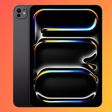Official Complaints Over '4G' Marketing of New iPad Taking Hold in Europe
Yesterday, we noted that Australian regulators are targeting Apple over its "misleading" marketing of the new iPad as a "4G" device in the country despite the fact that the device is incompatible with LTE networks being rolled out there. In response, Apple has offered refunds to customers who feel they were misled by the marketing.

Concerns over the 4G marketing are now getting the attention of regulators in several European countries as well, with The Wall Street Journal noting that the Swedish Consumer Agency is also considering launching an investigation into the matter.
Marek Andersson, a lawyer at the authority whose task is to safeguard consumer interests in Sweden, said the consumer agency has received several complaints from consumers over marketing which touts the new iPad as having 4G connectivity. [...]
“One may rightfully ask if the marketing of the new iPad is misleading,” Mr. Andersson said. While iPad is equipped with 4G connectivity, it will only work in the U.S. and Canada.
“The question is whether this information is clear enough in Apple’s marketing,” he added.
Meanwhile, Pocket-lint reports that a similar situation is playing out in the United Kingdom, where the Advertising Standards Authority is also fielding complaints from customers about the issue.
“We are aware of the news from Australia regarding the iPad 4G marketing claim,” an ASA spokeswoman told us. “Without going through due process we can't say whether the (UK) ad is likely to be problematic. If anyone has concerns about the iPad ad then they can lodge a complaint with us and we will establish whether or not there is a problem under the Code.”
The UK has strict regulation of advertising claims, and Apple's marketing has been the subject of several decisions from the ASA. In 2008, the agency banned an iPhone ad over misleading claims, while a more recent decision regarding claims of the world's thinnest smartphone came down in Apple's favor. The ASA also ruled in Apple's favor last month in a dispute over advertising for Siri on the iPhone 4S.
Popular Stories
Since the iPhone X in 2017, all of Apple's highest-end iPhone models have featured either stainless steel or titanium frames, but it has now been rumored that this design decision will be coming to an end with the iPhone 17 Pro models later this year.
In a post on Chinese social media platform Weibo today, the account Instant Digital said that the iPhone 17 Pro models will have an aluminum...
Apple is continuing to refine and update iOS 26, and beta three features smaller changes than we saw in beta 2, plus further tweaks to the Liquid Glass design. Apple is gearing up for the next phase of beta testing, and the company has promised that a public beta is set to come out in July.
Transparency
In some apps like Apple Music, Podcasts, and the App Store, Apple has toned down the...
The calendar has turned to July, meaning that 2025 is now more than half over. And while the summer months are often quiet for Apple, the company still has more than a dozen products coming later this year, according to rumors.
Below, we have outlined at least 15 new Apple products that are expected to launch later this year, along with key rumored features for each.
iPhone 17 Series
iPho...
Apple should unveil the iPhone 17 series in September, and there might be one bigger difference between the Pro and Pro Max models this year.
As always, the Pro Max model will be larger than the Pro model:iPhone 17 Pro: 6.3-inch display
iPhone 17 Pro Max: 6.9-inch displayGiven the Pro Max is physically larger than the Pro, it has more internal space, allowing for a larger battery and...
In 2020, Apple added a digital car key feature to its Wallet app, allowing users to lock, unlock, and start a compatible vehicle with an iPhone or Apple Watch. The feature is currently offered by select automakers, including Audi, BMW, Hyundai, Kia, Genesis, Mercedes-Benz, Volvo, and a handful of others, and it is set to expand further.
Apple has a web page with a list of vehicle models that ...
In select U.S. states, residents can add their driver's license or state ID to the Wallet app on the iPhone and Apple Watch, providing a convenient and contactless way to display proof of identity or age at select airports and businesses, and in select apps.
Unfortunately, this feature continues to roll out very slowly since it was announced in 2021, with only nine U.S. states, Puerto Rico,...
New renders today provide the best look yet relocated Apple logo and redesigned MagSafe magnet array of the iPhone 17 Pro and iPhone 17 Pro Max.
Image via Majin Bu.
Several of the design changes coming to the iPhone 17 Pro model have been rumored for some time, such as the elongated camera bump that spans the full width of the device, with the LiDAR Scanner and flash moving to the right side.
...
Apple is expanding the ability to add an Apple Account Card to the Wallet app to more countries, according to backend Apple Pay changes.
With iOS 15.5, Apple updated the Wallet app to allow users to add an Apple Account Card, which displays the Apple credit balance associated with an Apple ID.
If you receive an Apple gift card, for example, it is added to an Apple Account that is also...
Apple's next-generation iPhone 17 Pro and iPhone 17 Pro Max are just over two months away, and there are plenty of rumors about the devices.
Below, we recap key changes rumored for the iPhone 17 Pro models.
Latest Rumors
These rumors surfaced in June and July:Apple logo repositioned: Apple's logo may have a lower position on the back of the iPhone 17 Pro models, compared to previous...






















